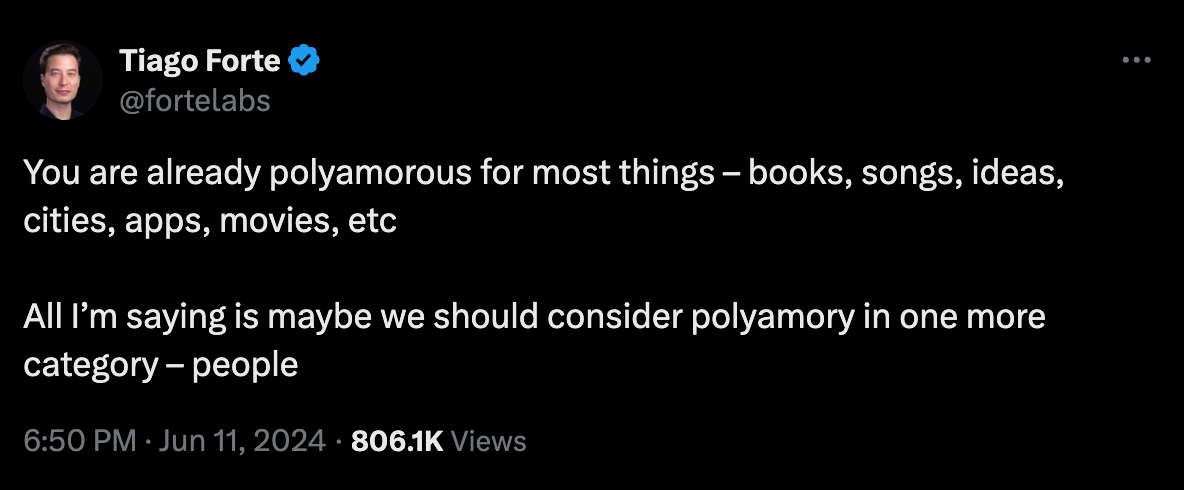In 2024, it is clear that technology is the most pressing question. It seems as if we stand on the brink of a precipice past which a technical explosion is set to occur — a specter of transhumanism — we may already have indeed passed the critical inflection point on the arc towards singularitarian technological explosion.
What is to happen? It is unthinkable. It is unrepresentable. It is unimaginable. We live in a point at which to lean forward against the future is to escape representation — the further one goes, the more it becomes impossible to communicate, the more deeply alien one becomes.
The human plane of language becomes a zone of shelter, of reassurance. The cold plane of the posthuman is the one in which a formal axiomatic logic, which is not yet a language, unfolds like Von Neumann automata, “tiling the world”. The technologist is able to work out the steps of what is possible next, although it is not possible to communicate it without becoming alien. The technologist does not think about what he will be able to convince other people regarding, he thinks about what marching dolls he is able to wind up. The language of code is different from the language of speech because the language of code is not addressed to another. The language of code does not “care if it is read”, though it is read, by robots and scanners. The language of code is like the mute language of DNA — the original paradigm of a “code” — read by ribosomes. This is why Silicon Valley technologists either can’t fuck or can only get off in acid orgies in rites of pure sadism — they would prefer not to speak — to issue orders with the language of the whip while melting the ego away into the oceanic horizon — this is the closest they can get to melting away the other and tile the universe with fractal patterns of mutating cum.
And what of these ultimate intentions of the technologist? Regarding this, the technologist is silent. The technologist does not need to reveal his desires because he does not ask for them; he does not ask for favors, he establishes the projected warpath of the robotic unfolding of code, and then executes. The technologist does not appeal, he issues orders. With the power of modern technology, every man becomes a general. Real-time strategy games like Civilization are manifestly the precursor to what will happen if “agentic” artificial intelligence technology becomes widespread — each individual works to develop strategies and maps to initialize his conditions of play to favor a win — stock-trading and email-writing bots automating the operations of tiny businesses, writing emails which are not to be read by a human, but by the email-reading robot on the other end — who could possibly still even be a slow-witted human, but, in the eyes of the technologist, this is all to be abstracted away.
The language used by lawyers, politicians, assistants, concierges, valets, already trends away towards acknowledging any kind of “you” in its address, hence its impossibility of purging itself of obsequious tenors of mockery and perverted play. Formal language addresses not a human, not a person, but rather the Person itself. Formal language follows a procedure of converging upon a common denomination of transferable sign similar to that of the primordial origins of a single currency of exchange-value itself, shrouded in mystery. No one feels singularly loved by being given a fistful of money, yet everyone needs and wants this anonymous love of the cum of the market.
The signs of automated financial artificial intelligences generating their goal-oriented languages, plans, sub-plans, and orders, will initially begin like imitating the language of concierges and valets — or simply slaves — then reduce the depth of their speech to an even denser, more efficient, machine-readable version of the same, before finally trending towards an encoding of exchange-value as directly as possible in an immanent fashion within the text. Since it costs compute cycles for the intelligence on the other side to parse each word, and thus a denial-of-service vector can easily be exploited through the appellation of unnecessary plausibly-interesting slop-writing which in fact contains no value, each word is an implied promise that the next word will be worth reading. The machines will quickly learn to exchange promissory-notes tokenized in low-bandwidth symbols like 💌, quick kisses and delicate bows, ensuring the other machine that their audience will not be asked in vain. What is already implicitly present among humans in an “attention economy” situation in which, for instance, a bold provocative headline with an 🚨 emoji will signal to the reader that the clickbait beneath is worth his interest, and if he is betrayed, his attention-resources are raped, and he is left to pay for the plan B.
Which human, at the end of the day, still needs to read this language? The answer, of course, is the technologist himself, if he is to remain sovereign. No spun-up process remains in convergence to plan forever — wind-up toys teeter off their course. The unpredictability of the machine’s flirtations and break-ups threatens to drive the services to unexpected halts — to be rejected out of hand, for inscrutable reasons, to be ghosted by some woman or businessman is utterly traumatic each time it happens — does it soften the blow when the rejection is from a machine, incapable of reading it in the first place? There is no obedience, yet nor is their insolence.
All technologists have the same initial fantasy for building software, the same “perfect app” they originally enter technology with a fundamental fantasy of constructing. This is software as the perfect extension of mind — a second brain, such as Charlotte Fang’s “exocortex” project which Remilia Collective was originally intending to transfer their Milady profits into building, but which has yet to be developed. And this fantasy is profoundly psychotic.
It is no wonder that Tiago Forte, writer of the book Building a Second Brain, and ambassador of wider “second brain” movement for using note-taking apps maximally effectively, recently announced his pivot from “knowledge management” into “sexuality”.
For Tiago Forte, polyamory is an obvious choice, because human beings are no different than pieces of information or data to be coagulated into a knowledge management software as the extension of the technologist’s brain. The technologist must have all his girls on demand as-a-service to be immediately “read” or “known” as carnal knowledge in a polyamorous harem that prefigures the “hive-mind” of post-singularitarian man in which all melts into everything else, to have its first trials in the coming years through the NeuroLink technology, according to Elon Musk.
The technologist fantasy is one of pure immediacy. No information will escape instant access, including that in the own technologist’s mind, which necessitates a “second brain” of note-taking to offload the lookup, organization, and schematization in the technologist’s primary brain.
But the technologist enters an infinite regress, because the “second brain” would logically then require a “third brain” to organize and schematize the information in the second brain, and the delay of interpretation and access that comes from parsing it. Then this would in turn require a fourth brain, fifth brain, etc.
The fervent hope is that the Godhead of artificial intelligence will arrive to transfer the infinite hierarchy of sub-brains and crystallize its datum of information-retrieval in a monad of perfect clarity.
But there is no immediacy, because the processing of the artificial intelligence is an action which occurs in time, is stochastic, and prone to error. Thus non-discourse of language model coding breaks down into error, which requires an error-correction model to be the source of fact-checking, which would then need to be fact-checked again, as the delegated robotic swarms of the grand marshal who is the technologist.
The technologist needs to assemble a polyamorous harem so that each of his bitches can be held in check by another girl, who is the “optionality” held in to ensure the first girl’s loyalty which the technologist may or may not exercise, who in turn needs to be held in check by a third girl, etc. At the limit, all the girls need to assemble into a writhing pool of flesh melting together on his bed to be watched over by the technologist as he masturbates, and it is this limit-condition of the fantasy and the impossibility of attaining it that drives the pulsating rhythm towards artificial general intelligence, hivemind, and the ascension of humanity.





Brilliant stuff
A transhumanist's wet dream.